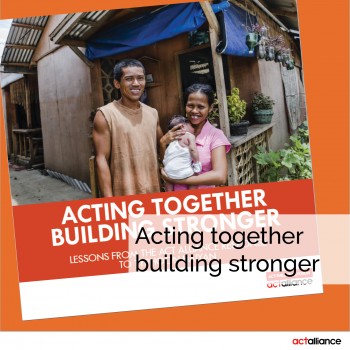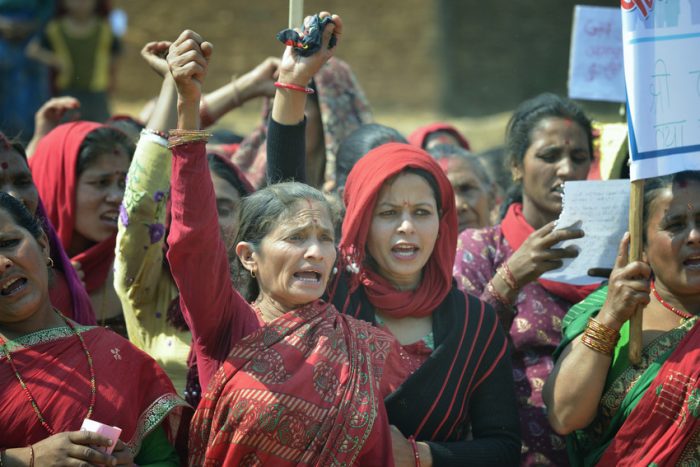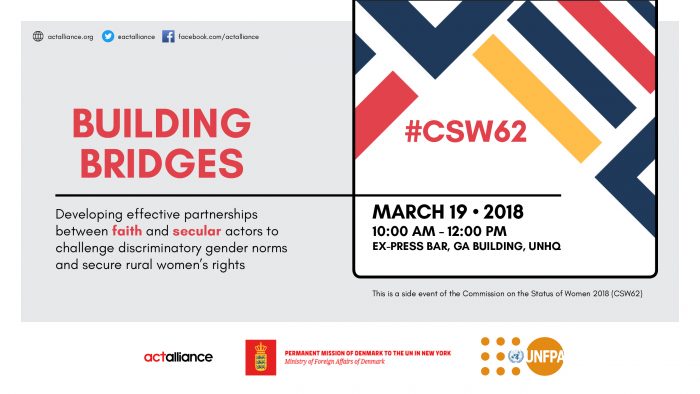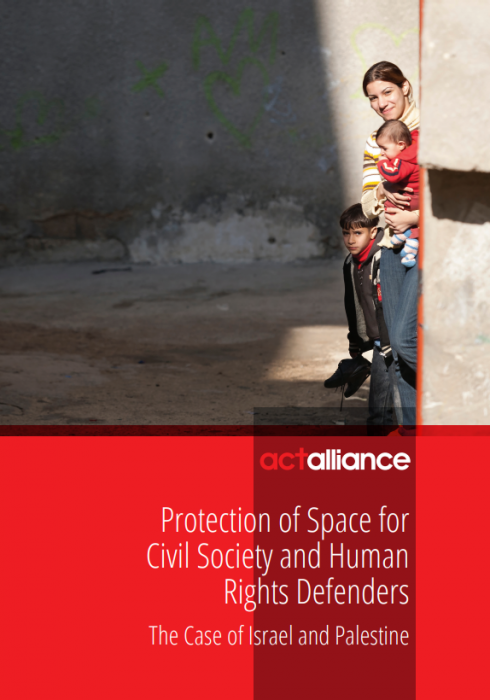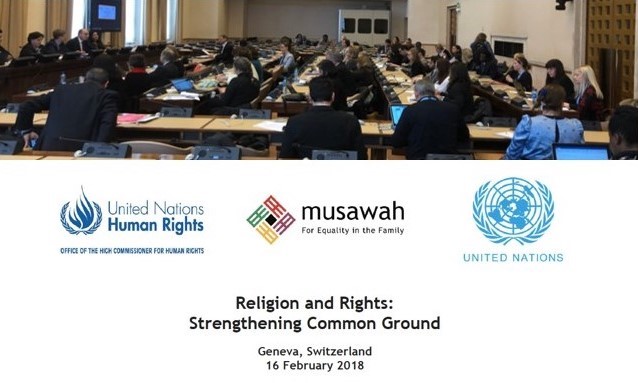
Related to humanitarian, development and advocacy work of ACT Alliance
Typhoon Haiyan, which was a Level 3 emergency which brought ACT members to respond in the country in November 2013. The ACT Secretariat, Lutheran World Federation, and other ACT members outside the country came in to assist during the relief and recovery phase. An ACT Coordination Center was established, a first in the ACT response, which facilitated the coordination of all the ACT implementing members, headed by the country Forum. The 3-month old Forum took the challenge of managing such a scale of the disaster, which brought many learnings that are shared through a joint publication entitled: ACTING TOGETHER, BUILDING STRONGER, Lessons from the ACT Alliance Response to Typhoon Haiyan, which was widely shared in print and online with the whole ACT Family. The learnings were highlighted in 4 areas: coordination, convergence, localization and quality & accountability. The coordination among the ACT Philippines Forum and other ACT members fostered the ACT Strategic Theme: Join Hands, Full Life and Dignity for All. The Forum has had internal and external evaluations in the course of the response, one of which is the Donor’s Joint Monitoring Visit, which the Forum and the ACT Coordination Center jointly organized. Reflections and learning workshops were also carried out, to ensure that the Forum members are continuously improving its service.
The Forum coordinates every humanitarian response within or outside an ACT Appeal. At least in information sharing, the Forum shares each other’s work to avoid duplication and promote coordination in the common areas it serves.
Aside from the humanitarian response, the ACT Forum carries the advocacy on PUTTING PEOPLE AT THE CENTER, LOCALIZATION, CSO PARTICIPATION & COORDINATED RESPONSES, SUSTAINABLE DEVELOPMENT and CLIMATE CHANGE, which are part of the ACT strategic direction and commitment to WHS. In the recent undertakings with ACT, the ACT Forum participated in the signature campaign during the COP21 in Nov 2015. The advocacy on climate change is one of the focus on strategic directions of the Forum.
Related to building trust and ACT governance, including strategic collaboration as part of the wider ecumenical movement and learning with other forums
The Forum has been efficient and effective in collaborating on ACT Appeals: Typhoon Haiyan, Typhoon Haima, Typhoon Nina, and Marawi Conflict – collectively deciding how to utilize resources. There is also a reflection and learning sessions on past responses which were documented and shared to the whole Alliance.
There was a joint analysis on the current context to suitably set the Forum’s direction, in accordance with the ACT global strategic direction. The ecumenical Diakonia is being concretized by our effort to share the work and advocacy of ACT Alliance during the Annual Forum meeting to other WCC members and even other FBOs in the country. Various means are being used to share relevant information such as publishing resource materials, brochures and presentations, and maximizing different FBO activities.
Related to ACT Alliance recognition and visibility
The individual Forum members, Lutheran World Relief & Christian Aid, are regularly in contact with the UN OCHA in the country through the Philippines INGO Network (PINGON), and the meetings with national organizations where the National Council of Churches in the Philippines is one of the 8 organizations being consulted by the agency. (Advocacy)
Reaching out to the wider faith-based community is one of the best practices of the Forum: the Forum initiated holding the pre-and post-WHS fora, where the ACT Alliance’s and the ACT Philippine Forum members’ papers and commitments were shared, offering a space where faith-based humanitarian organizations gathered and reflect its role together, and talked about how the WHS commitments will be actualized locally. Followed by a dialogue with the National Disaster Risk Reduction and Management Council, the Philippine government’s DRRM arm, where the recognition on the role played by FBOs during disasters are highlighted and better coordination with the FBOs were explored. These gatherings resulted in a clamor to organize the FBOs in the country to share resources, good practices, and collaborate in possible areas of service. During the strategic planning, the Forum, despite of not having steady funds to implement activities, decided to continue this goal because of its huge potential in improving the way we do humanitarian service.
With its localization agenda, the Forum decided to support the national FBOs, with NCCP as its representative. The formation of the Philippine Faith-Based Organization Forum (FBO PH) consisting of the 3 major Christian Councils (Catholics, Protestants & Evangelicals) and its constituencies in the country on November 2017, will not be made possible without the ACT Philippines Forum’s initiative. It is during those reflective sessions which borne the realization and need for FBOs to come and work together in the areas of humanitarian and development and advocate with the most vulnerable communities in the country.
Practise/ Policy (innovative, replicable): Shared humanitarian advocacy agenda on Localization
Results:
- Prioritization of local partners and regional ecumenical councils (composed of NCC member churches) in emergency response and humanitarian capacity building;
- Active coordination amongst members from monitoring, planning, implementation and evaluation during Joint ACT Appeal Emergency Response (Marawi Conflict, Super Typhoon Haiyan, Super Typhoon Haima);
- Mainstreams community-based and survivor-led initiatives in emergency response and preparedness;
- Engagement of ACT Forum Members in humanitarian advocacy (Balik-Lokal), capacity building of regional and local member churches/partners, local shared roster (Transforming Surge Capacity);
- Joint learning knowledge product on Haiyan Response (Visibility);
- Contributes to ACT WHS commitment



